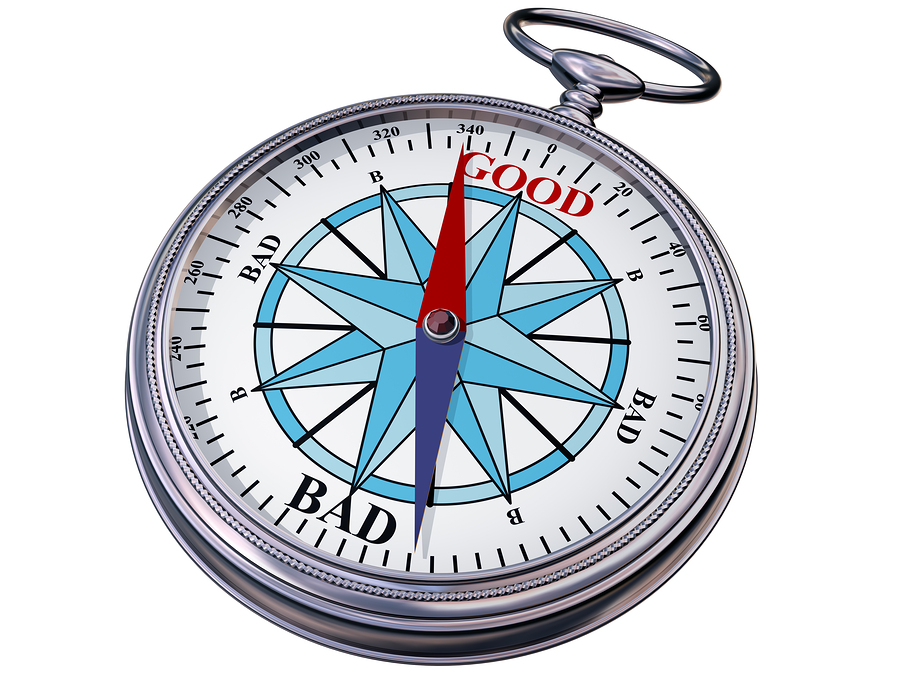The Moral Argument For God’s Existence is a common argument that Christian Apologists use in trying to prove that God exists. The Moral Argument takes the form of modus tollens and is therefore a logically valid argument. Therefore, all one has to do to affirm the argument’s conclusion is to show that both of the premises in the argument are true. The Syllogism for The Moral Argument goes as follows
1: If God does not exist, objective moral values and duties do not exist.
2: Objective moral values and duties do exist.
3: Therefore, God exists.
If you’ve never been exposed to this argument before, I’d suggest reading an older blog post I wrote called “The Moral Argument For God’s Existence”. In that article, I defend both premises of the argument. In this blog post, I will answer objections to the argument’s second premise.
In my blog post “The Moral Argument For God’s Existence”, I argued for the second premise (i.e “Objective moral values and duties do exist”) by appealing to our moral intuitions. I argued that we intuitively know that good and evil exists. If you were to turn on the news and were to hear a report of a man torturing an innocent child in his basement for 10 years, doing all sorts of vicious and gruesome things to her, and got a sick, twisted pleasure out of it, you would outraged at that man. The very core of your being would cry out to you that the things this man did was extremely evil, and that he should be severely punished for doing those things. You would not merely write them off as something you didn’t like. Your moral intuition told you that torturing an innocent child is truly evil.
As William Lane Craig wrote “I take it that in moral experience we do apprehend a realm of objective moral values and duties just as in sensory experience we apprehend a realm of objectively existing physical objects. Just as it is impossible for us to get outside our sensory input to test it’s veridicality, so there is no way to test independently, the veridicality of our moral perceptions.” He goes on to say “There is no more reason to deny the reality of objective moral values than the objective reality of the physical world. In the absence of some defeater, we rationally trust our perceptions whether sensory or moral.”
Craig argues that our moral experience is on par with our physical experience. Our 5 senses tell us that the physical world is real, that you are really sitting there reading this blog post. In a similar way, your moral senses tell you what is good and what is evil. Now, we can’t get outside of our moral senses to test whether they’re giving us reliable information, but neither can we get outside of our physical senses to test whether they’re giving us reliable information. Should we therefore conclude that no physical world exists?
Some, however, would take issue at appealing to our moral intuition to affirm that morality is objective. Let’s look at some of their objections.
1: “People disagree on moral issues like abortion, homosexuality, and war, so our moral intuitions are unreliable guides.”
Some people try to argue against The Moral Argument’s second premise by pointing out differences in opinion when it comes to moral issues like abortion, homosexuality, whether or not going to war is ever justified, and so on. They say that peoples’ moral intuitions are telling them different things, and therefore, our moral intuitions are unreliable guides in determining whether right and wrong really exist.
Indians believe cows are sacred and should never be killed for food while Americans think it’s alright to butcher cows for food. Many civilizations think cannibalism is evil and disgusting, but some primitive tribes engage in it with no problem. Do these moral disagreements indicate that we cannot trust our moral intuitions to affirm that right and wrong really exist?
I don’t think so. Remember the parallel between our moral intuitions and our physical senses. We trust that the physical world is real because our senses tell us so. Our moral intuitions tell us that things are really right and really wrong. It seems to me that if this argument could be used against our moral intuition, it could also be used against the reliability of our physical senses. After all, some people are color blind while others are not. But should that really cause us to doubt that colors like red, blue, yellow, green, and so on really exist? Should we doubt that colors exist just because there’s a disagreement between the color blind and those who perceive color? What about those who can perceive color, yet disagree on a certain shade of the color? I have gotten into arguments with people before on whether the hair of a certain anime character was purple or blue (I argued that it was blue), and whether or not the pants I was wearing were black or dark blue. According to the moral relativists reasoning, these differing conclusions on color should lead us to conclude that color is not an objective feature of reality. This is absurd.
But if differing opinions on color do not render color a non-objective feature of reality, why should differing opinions on moral issues render morality a non-objective feature of reality?
Moreover, a lot of times the disagreement on whether something is moral or immoral isn’t a disagreement on morality, but on the facts surrounding the situation. For example, in the case of abortion, the issue isn’t whether murder is really evil, or whether a woman has a right to do whatever with her body that she wants, the issue is whether the unborn fetus is a living human being. Pro-lifers would argue that the unborn fetus is alive and that abortion kills that living human. Pro-choicers on the other hand would argue that the unborn fetus is just a blob of cells, so that no murder is really taking place. So the debate isn’t “is it wrong to murder babies?” the debate is “Is abortion really murder?”
In the case of Indians considering the murder of cows immoral, Indians’ belief that cows should not be killed is shaped by their religious belief in reincarnation. They believe that the souls of their loved ones could be inhabiting the cows in the pasture. So that to eat a cow is potential cannibalism! We Americans don’t believe that, so we have no qualms about eating cows. Both Indians and Americans agree that “It’s wrong to eat your relatives” what they disagree on is whether the souls of their relatives inhabit the bodies of cows. So, it’s not a disagreement on morality, but a disagreement on whether humans come back as cows.
In the case of cannibalism committed by primitive tribesman, it may be the case that they don’t believe the people in other tribes are even human.
2: “But what if you needed to lie in order to save someone’s life? It seems that morality is not absolute as you say it is.”
The problem with this objection is that we’re not talking about moral absolutes, but about objective morality. There is an important difference between absolute and objective. Absolutism requires that something will, or must, always be the case. Objectivity simply means ‘mind-independent’ or ‘judgment-independent’. When I argue for objective morality, I’m not arguing that it is always the case that lying or killing are wrong. It may be the case that lying in some contexts is justified, like if Nazis came to your door and asked if you were hiding Jews. Your obligation to defend innocent life would supersede your obligation to state an accurate proposition. The moral argument does not defend absolute morality. Rather, it contends that certain things are objectively right or wrong.
In the case of lying to the Nazi, it would be objectively right to lie in that situation, but objectively wrong to lie in many other circumstances (e.g for personal gain, or to cheat someone out of money). It’s objectively wrong to kill people in most situations, but in a circumstance where you’re defending innocent life, like the situations police officers sometimes find themselves in, it would be objectively right.
It’s noteworthy that the reason these moral dilemmas cause such conflict in our minds is that we believe in the objectivity of the moral status of the actions in question. We believe lying is objectively bad, and we also believe that sending people to their deaths is objectively bad.
3: “If You Can’t Prove Morality Is Objective With Absolute Certainty, I Won’t Believe It”
If you need 100% certainty in order to believe something, then you will believe very, very, very little. The vast majority of our conclusions are based on probability, not absolute certainty. For example, I believe that the external world is real. But I can’t absolutely, 100% sure? What if I’m a brain in a vat of chemicals in a laboratory somewhere with electrodes hooked to me, being stimulated by a mad scientist to make me think the external world is real? How can I know? I can’t.
But if there’s no evidence against the external physical world’s reality, I would be irrational to doubt it.
Some philosophers have argued that we cannot prove with 100% certainty that we were not created just 20 seconds ago with the universe having an appearance of age and past history, and with all of our memories programmed into our minds, and with food already in our stomachs. But no sane person would believe that he, the universe, and everyone else are only 20 seconds old.
We can have certainty that morality is objective, that the external world is real, that the world is a lot older than 20 seconds, and many other things with certainty beyond a reasonable doubt. What that means is that you can have certainty to the extent that any doubt you may have is Unreasonable. It would be Unreasonable to think the external world isn’t real. It would be Unreasonable to think that we were created just 20 seconds ago with the universe having an appearance of age and past history, and with all of our memories programmed into our minds. Beyond a reasonable doubt, not beyond a possible doubt.
When the evidence for a conclusion is stacked high enough, the rational person should accept it even if a tiny possibility remains that he’s wrong.
You can’t “prove” that objective morality exists, but you can’t “prove” that your senses are providing reliable information either. Once again, an argument against our moral intuitions can be used against our physical senses.
4: Doesn’t The Socio-Biological Evolutionary Account Undermine The Reliability Of Our Moral Intuitions?
Many people think that our moral beliefs are spin-offs of biological and social evolution and conditioning. In fact, I agree that if atheism is true, this is, in all probability, correct; our moral beliefs were chosen by natural selection because they benefit the continued existence of the human species. This objection argues that the socio-biological account of the origins of morality discredits our moral intuitions. But, is this a valid objection?
First of all, this objection commits the genetic fallacy. It matters not where you learned morality. Even if the epistemological source of your beliefs are improper, your belief could still nevertheless be true. The genetic fallacy is when a person tries to discredit your belief by attacking how you came to hold the beliefs that you hold. For example, often times atheists say “You’re only a Christian because you were raised in a Christian home. If you were raised in a Muslim home, you’d be a Muslim. If you were raised in a Buddhist home, you’d be a Buddhist.” This argument is fallacious because how one came to believe Christianity is true is entirely irrelevant to whether or not it is true. The socio-biological account being an argument against The Moral Argument is the same way. It matters not whether evolutionary history is what ingrained our moral beliefs into us, they could still be true regardless.
However, the objector might back up and go “Okay dude, maybe the truth isn’t undermined by evolutionary theory, but the epistemological justification is undermined”. The socio-biological account might not render objective morality spurious, but it would render us not capable to truly knowing whether or not objective morality is real. After all, natural selection selects things for their survival value, not for their truth value.
First of all, this protestation to the argument is self refuting since not only our moral beliefs are formed through socio-biological conditioning, but every single one of our beliefs are, such that you couldn’t believe anything, not even the socio-biological account! Secondly, this objection presupposes that atheistic Darwinian Evolution is true, but what if theistic evolution is true? If that were the case, no problem would remain would it? The skeptic needs to first prove atheism for this objection to go through, which is just begging the question.
CONCLUSION
These 4 objections to objective morality fail to undermine the warrant for premise 2, that “objective moral values and duties do exist”. We have no good reason to trust our moral intuitions in telling us what is right and what is wrong, as moral relativists have attempted to do.
I find that the vast majority of atheists I use this argument on do not deny the second premise. They agree with me that good and evil objectively exist! What they deny is the first premise, that if God doesn’t exist, then objective morality wouldn’t either. That’s the premise most of them deny. However, you will find atheists every now and then who deny the second premise, and use the aforementioned objections to try and justify their rejection of premise 2.
Share this:
- Share on Facebook (Opens in new window) Facebook
- Share on X (Opens in new window) X
- Print (Opens in new window) Print
- Email a link to a friend (Opens in new window) Email
- Share on Pinterest (Opens in new window) Pinterest
- Share on Reddit (Opens in new window) Reddit
- Share on LinkedIn (Opens in new window) LinkedIn
- Share on Tumblr (Opens in new window) Tumblr
Discover more from Cerebral Faith
Subscribe to get the latest posts sent to your email.




